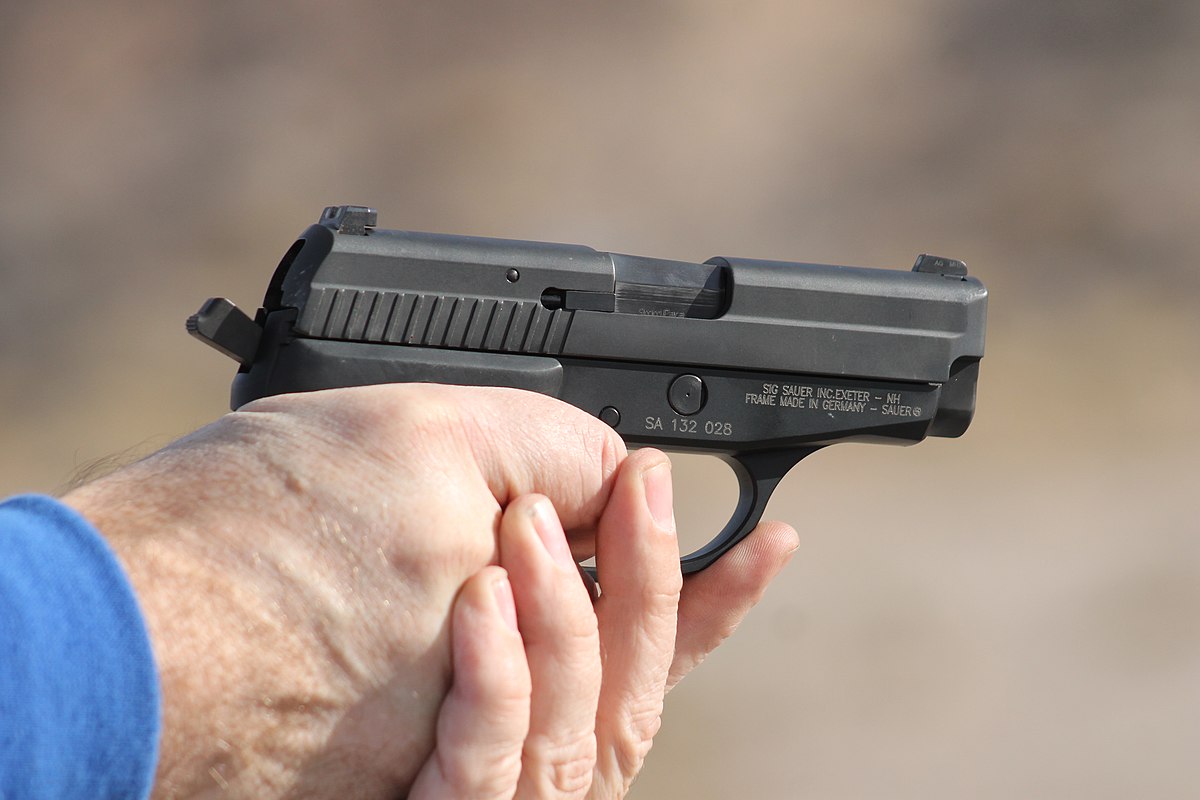
Training Requirements Released For School Staff Authorized to Carry Gun in School
Article Presented By Classic Brands.
(Columbus) — Ohio Governor Mike DeWine has announced that the Ohio School Safety Center (OSSC) has finalized state training requirements for school staff members authorized by their districts to be armed on school grounds.
The OSSC’s Armed School Staff Essential Training (ASSET) Curriculum was developed to meet the requirements outlined in House Bill 99 which was sponsored by Representative Tom Hall (R-Madison Township) and Senator Frank Hoagland (R-Mingo Junction) and signed by Governor DeWine in June. The legislation permits Ohio school boards and governing bodies to opt to arm specific staff members who complete training on the curriculum developed by OSSC.
“We have an obligation to do everything we can to prevent violence and avoid tragedies in our schools,” said Governor DeWine. “For districts that choose to arm a school staff member, this training will ensure that those individuals are thoroughly prepared to respond to emergencies specific to a school environment.”
At Governor DeWine’s direction, the new ASSET curriculum includes 24 hours of initial training and eight hours of annual recertification training, the maximum number of hours permitted by law. The curriculum defines the subjects that instructors must cover, the amount of time spent of each topic, and the learning objectives that those taking the training must meet.
Both the initial and recertification training include:
- scenario-based training
- instruction on mitigation techniques
- de-escalation techniques
- tactics of responding to critical incidents
- neutralization of potential threats and active shooters
- tactical live firearm training
Other modules include accountability, reunification, psychology of critical incidents, crisis intervention, trauma and first aid care, history/pattern of school shootings, and realistic urban training. Development of additional curriculum is underway for districts that choose to require more training than what is mandated by the state.
Mobile training officers with OSSC’s Safety and Crisis Division will begin offering the ASSET training in 2023, but schools also have the option to select an alternate training provider whose training courses meet the requirements of the new OSSC curriculum. Schools can find more information on how to sign up for state training or training offered by an alternate entity ohioschoolsafetycenter.ohio.gov.
The option to arm trained staff members in schools is a school safety measure that builds on many other initiatives developed by the DeWine-Husted Administration to protect school students and staff. In 2019, Governor DeWine developed the Ohio School Safety Center within the Ohio Department of Public Safety to be a comprehensive, statewide office focused exclusively on enhancing the safety of Ohio schools. In addition to maintaining and promoting the Safer Ohio School Tip Line, the center assists schools and first responders in preventing, preparing for, and responding to threats and acts of violence including self-harm. Staff also proactively scan social media and websites to identify threats against schools. Governor DeWine has also worked to protect Ohio schools through violent crime reduction strategies and enhanced mental health services, including:
Enhancing School Security
- Governor DeWine worked with the Ohio General Assembly to help schools pay for physical security upgrades through the new Ohio K-12 School Safety Grant Program, which has allotted $100 million to more than 1,000 Ohio schools this year.
- Governor DeWine worked with the Ohio General Assembly to create the Ohio Campus Safety Grant Program, which helps colleges and universities pay for physical security upgrades.
- Governor DeWine worked with the Ohio General Assembly to create the Ohio Safety and Security Grant Program, which helps cover the costs of security upgrades at chartered nonpublic schools, licensed preschools, nonprofit organizations, and religious institutions.
- Governor DeWine created the Ohio School Safety Working Group consisting of experts in the fields of public safety, education, mental health, emergency management, and others. The group meets quarterly to discuss school safety issues, trends, and local needs.
Encouraging Student Wellness
- Governor DeWine created the Student Wellness and Success Fund, a $1.2 billion investment that is now a part of the school funding formula, to provide wraparound services to students. Wraparound services are programming and supports meant to build skills and fulfill a student or familial need. To date, this funding has launched 1,300 mental health programs and trained 6,500 educators and school professionals.
- After hearing about the need for more accessible mental health services for students on college campuses, Governor DeWine led the nation with a $13.5 million investment to expand mental health services for higher education students.
Strengthening Ohio’s Mental Health Workforce
- As part of his Wellness Workforce Initiative, Governor DeWine announced a plan to invest $85 million, with the help of the General Assembly, to expand Ohio’s behavioral health workforce to meet the need.
Reducing Violent Crime
- Governor DeWine worked with the Ohio General Assembly to invest $250 million in Ohio’s law enforcement agencies and first responders.
- Governor DeWine created the Ohio Ballistics Testing Initiative to double the number of National Integrated Ballistic Information Network units in Ohio to help law enforcement identify criminals responsible for deadly shootings and other incidents of gun violence in Ohio.
- Governor DeWine created the Ohio Crime Lab Efficiency Program to eliminate backlogs in the testing of criminal evidence at Ohio’s certified crime labs across the state with the goal of returning evidence test results back to law enforcement faster.
- Governor DeWine created the Ohio Violent Crime Reduction Grant Program to provide funding to local law enforcement agencies to help them implement new violent crime reduction strategies in their communities.
- Governor DeWine directed the Ohio State Highway Patrol to assist local law enforcement with “surge operations” designed to interdict gun violence and repossess stolen or illegally possessed guns.
- Governor DeWine created the eWarrant system, a statewide criminal justice database to improve the accuracy of state and federal background checks and streamline the process to file warrants and protection orders in Ohio.


























